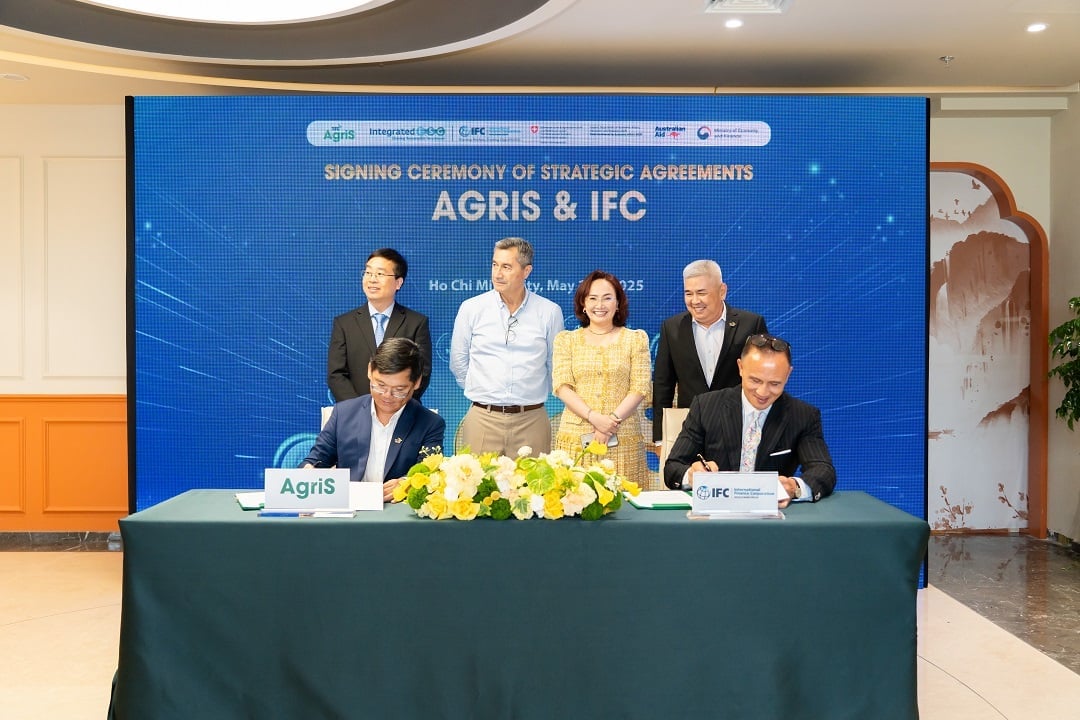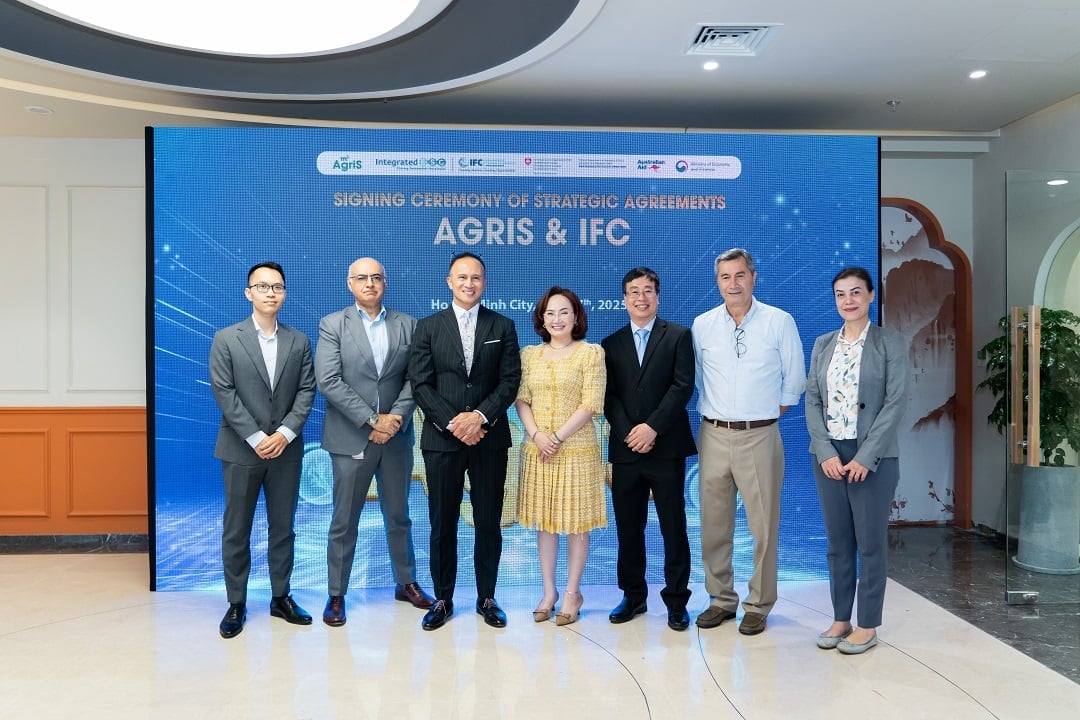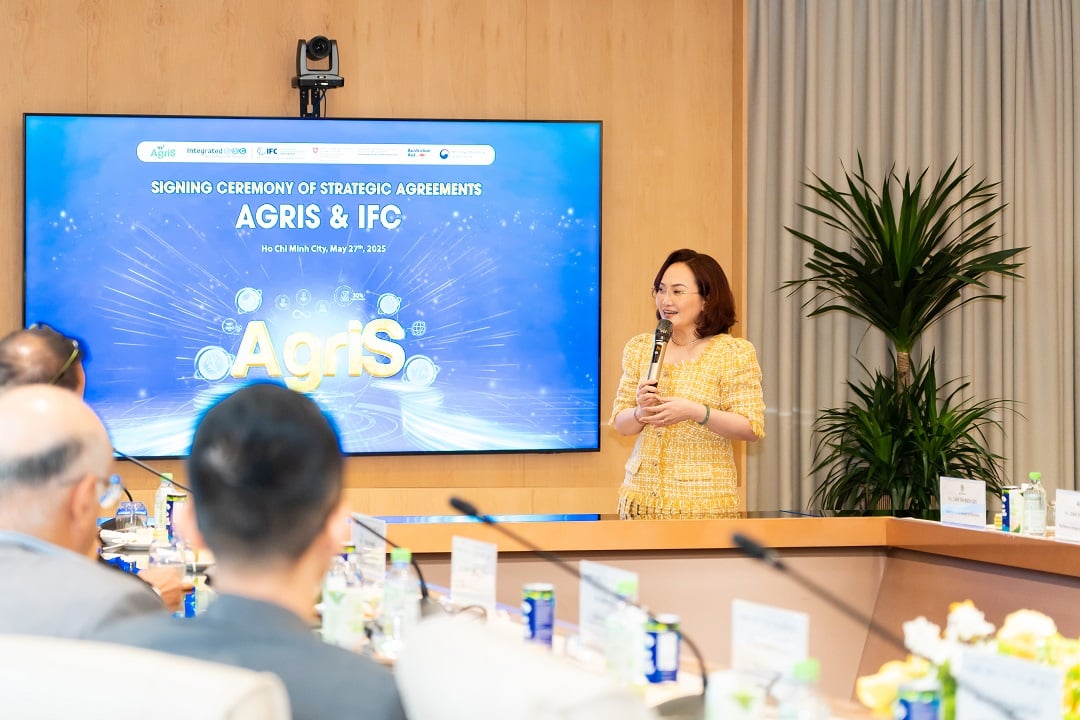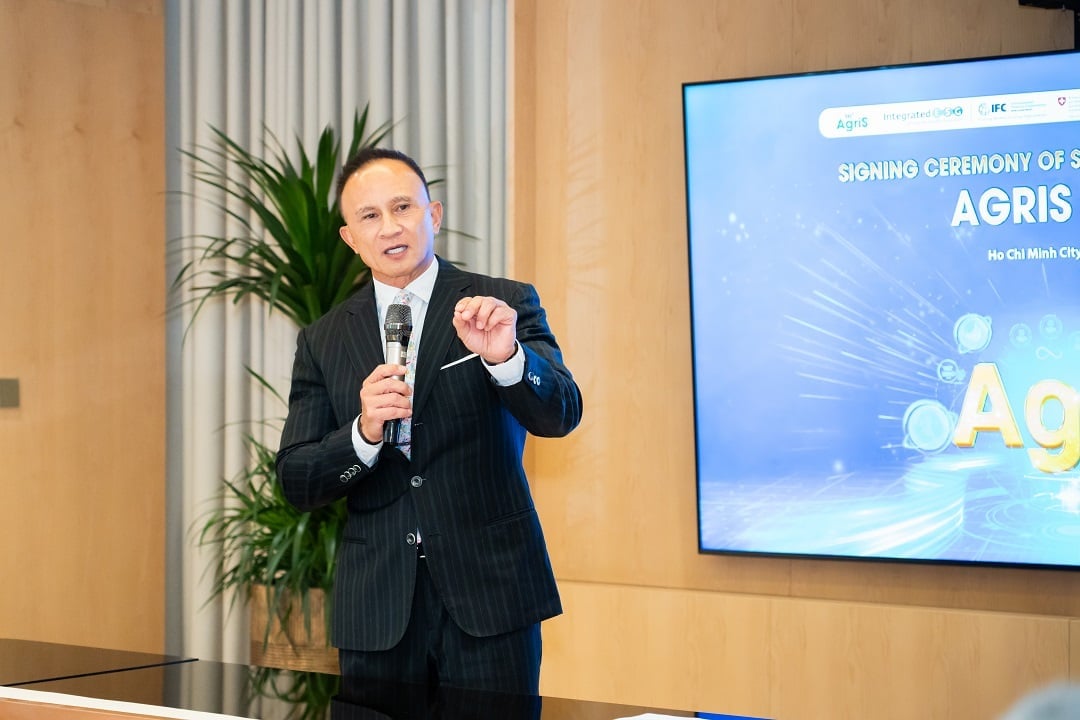June 2, 2025 | 12:11 GMT +7
June 2, 2025 | 12:11 GMT +7
Hotline: 0913.378.918
June 2, 2025 | 12:11 GMT +7
Hotline: 0913.378.918
TTC AgriS (Thanh Thanh Cong - Bien Hoa Joint Stock Company, AgriS, HOSE: SBT) and IFC (International Finance Corporation) - a member of the World Bank Group - have signed a Memorandum of Understanding (MoU) on cooperation in sustainable governance aligned with global standards.
This event marks a significant milestone in AgriS’s efforts to optimize its Environmental and Social Management System (ESMS) in accordance with international best practices and to realize its goal of achieving net-zero emissions by 2035.

AgriS - IFC join hands to develop a sustainable agricultural value chain. Photo: AgriS.
As part of the collaboration, IFC with support from the Swiss State Secretariat for Economic Affairs (SECO), and the governments of Australia and South Korea, will work closely with AgriS to develop a comprehensive action plan aimed at reducing emissions, offsetting carbon, and enhancing ESG monitoring across the agricultural value chain. Key initiatives include: expert consulting on greenhouse gas emissions management in accordance with ISO 14064-1, ISO 14067, and ISO 14068 standards; training for internal teams and partners on emissions inventory and Net Zero roadmap development; strengthening food safety practices, reducing food loss, and integrating gender and disability inclusion into the supply chain.
Following the advisory phase, AgriS and IFC will jointly implement a series of in-depth training programs focused on three key pillars: food safety, food loss reduction, and greenhouse gas emissions reduction. Additionally, the two parties will co-develop an emissions neutrality strategy and a Net Zero verification mechanism in collaboration with an independent assessment body.
IFC will assist AgriS in conducting a comprehensive review of its current ESMS and in developing an optimization roadmap aligned with IFC’s Environmental and Social Performance Standards. The focus areas include: integrating E&S standards into operations, policies, and risk management systems; providing advanced training on international E&S norms for internal teams and strategic suppliers; and connecting corporate operations with global financial ecosystems and strategic partners.

AgriS Chairwoman, Ms. Dang Huynh Uc My (fourth from the left), and IFC Country Manager for Ho Chi Minh City, Mr. Darryl James Dong (third from the left), at the Signing Ceremony.
This collaboration is expected to deliver tangible and practical outcomes: training 200 internal trainers (ToT); ensuring 100% of ESG-related operational staff are trained to international standards; integrating over 20% of key suppliers into the new ESMS; and reducing post-harvest losses by at least 20% in strategic raw material regions, thereby enhancing value chain efficiency and advancing toward the Net Zero 2035 goal.
Speaking about AgriS’s sustainable development orientation and expanded partnership with IFC, Ms. Dang Huynh Uc My, Chairwoman of the Board at AgriS, shared: “Partnering with IFC reaffirms AgriS’s long-term commitment to sustainable development. We are building a comprehensive environmental and social governance system that meets stringent global requirements and embeds ESG deeply into every stage of our operations. From production and supply to value chain management, AgriS remains steadfast in developing a transparent, sustainable, and responsible ecosystem.”

Ms. Dang Huynh Uc My affirmed that the collaboration with IFC serves as a foundation for building a comprehensive, internationally standardized environmental and social governance system.
"Our partnership with AgriS is expected to become a benchmark for other Vietnamese agricultural enterprises seeking to strengthen ESG governance, enhance competitiveness, access sustainable financing, and elevate domestic supply chains to meet regional and global standards," said Mr. Darryl Dong, IFC Country Manager in Ho Chi Minh City.

Mr. Darryl Dong emphasized the importance of strengthening ESG governance within enterprises to help shape a new standard for Vietnamese agriculture.
As Vietnam accelerates the implementation of Resolution 57-NQ/TW and transitions toward a circular economy model, AgriS is demonstrating a pioneering role, not only through its internal operational capabilities but also through its positive impact on the entire agricultural sector.
The implementation of a chain-wide ESMS is a strategic move that positions AgriS as one of the first agricultural enterprises in Vietnam to adopt structured and effective ESG governance.
AgriS (HOSE: SBT): With over 55 years of dedication to a responsible value chain, AgriS (HOSE: SBT) is a leading high-tech agricultural enterprise in the region. Committed to building a green and modern agriculture, AgriS continuously innovates and optimizes its commercial value chain through the AgriS Circular Commercial Value Chain model, aiming to achieve Net Zero emissions by 2035.
IFC, a member of the World Bank Group, is the largest global development institution focused on the private sector in emerging markets. In fiscal year 2024, IFC committed a record USD 56 billion to private companies and financial institutions in developing countries, leveraging private sector solutions and mobilizing private capital to help create a world without poverty on a livable planet. For more information, visit www.ifc.org.
Translated by Kieu Chi

(VAN) Seafood by-products are opening a new path, combining green growth and technological innovation to enhance the industry's value.

(VAN) Mr. Nguyen Thanh Cong, Vice Chairman of the Son La Provincial People's Committee, reflects on Son La’s journey from barren hills to fruitful orchards after a decade of hard work.

(VAN) FAO’s Director-General addresses the 5th Baghdad International Water Conference.
/2025/05/26/1716-4-nongnghiep-191706.jpg)
(VAN) Chain linkages, technological innovation, and raw material zoning are three strategic pillars for the coconut industry to strongly develop and elevate its position on the global agricultural map.
![Advanced mariculture – an inevitable trend: [4] Accompanied by scientists](https://t.ex-cdn.com/nongnghiepmoitruong.vn/608w/files/sohk/2025/05/13/1941-pgsts-vo-van-nha-140958_717.jpg)
(VAN) According to Assoc. Prof. Dr. Vo Van Nha, Director of the RIA III, the development of advanced offshore mariculture is no longer an option but an essential path for Vietnam’s fisheries sector.

(VAN) Vietnam is intensifying the development of mollusk farming areas that meet international standards, aiming for sustainable growth and enhancing its export position in the global seafood market.